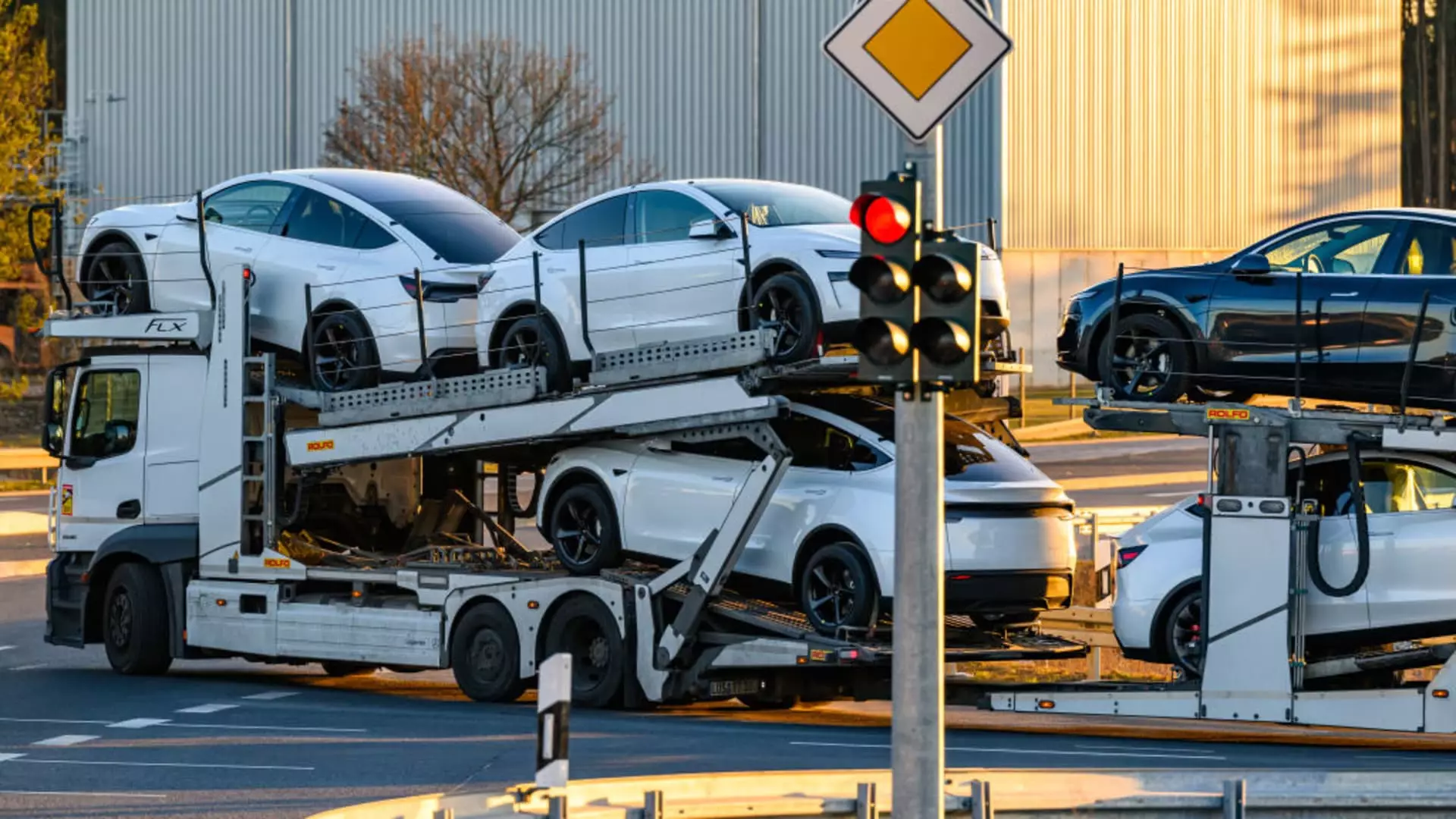Tesla has once again found itself in the glaring spotlight of reality, reporting a total of 336,681 electric vehicle deliveries in the first quarter of 2025. This figure marks a worrying 13% drop compared to the previous year, leading to the steepest decline in stock value since 2022. For a company once heralded as a beacon of innovation and market dominance, these numbers sound an alarm. Investors had anticipated better performance, with many estimates hovering between 360,000 and 370,000 vehicles delivered. Instead, the data revealed a significant shortfall that left stakeholders reeling. The question that arises is whether this is merely a temporary hiccup or indicative of deeper systemic issues.
Market Expectations vs. Reality
The disparity between expected and actual performance is remarkable. Tesla’s investor relations team had previously conveyed a consensus expectation of around 377,590 deliveries. Instead, reports from financial analysts, including Dan Ives of Wedbush Securities, painted a bleak picture of Tesla’s situation. Ives characterized the results as a “fork in the road moment,” a turning point that may rattle even the staunchest supporters of both the company and its charismatic CEO, Elon Musk. His assertion that “these numbers were bad” offers a stark reminder that optimism should not cloud judgment, especially when profitability is at stake.
Adding to this complexity, the company has not detailed delivery statistics by vehicle model or geographic region, which leaves a veil over understanding exactly where the failures lie. Given that Tesla’s production capacity has not been fully realized, one can only speculate whether the shortfall stems from declining demand or other operational inefficiencies.
Production Challenges and Rivalry
Tesla produced 362,615 vehicles during this period but delivered only 336,681. Although the discrepancy could indicate challenges in logistics or sales execution, there are larger forces at play. Planned shutdowns in manufacturing to upgrade production lines for the much-anticipated redesigned Model Y add another layer of complexity. Elon Musk’s ambitious claim that the Model Y would once again become “the best-selling car on Earth” must contend with the reality of mounting competition from various electric vehicle manufacturers.
Alongside these production hurdles, the brand’s reputation is taking a hit. Musk’s political maneuverings and rhetoric have fostered unrest among consumers, bringing forth protests and boycotts of Tesla vehicles. The company is not just waging a battle for market share; it is grappling with its brand identity.
A Wrecking Ball for Market Share
To compound matters, Tesla has seen its market share in Europe drop drastically. Once standing tall with a 17.9% share in early 2024, it now languishes at a mere 9.3% across 15 European nations, with Germany experiencing an even steeper decline. The electric vehicle landscape is rapidly evolving, and Tesla’s market dominance is being challenged by newfound competition, notably from companies like BYD in China, where sales also slipped 11.5% year-on-year.
In this environment, Musk’s controversial involvement in political matters—joining the fight for Trump and endorsing anti-immigrant agendas—creates a dissonance that could alienate customers. While embracing a hardline political stance, Musk has risked Tesla’s brand loyalty, and whether such a tactic can coexist with a progressive consumer market is an ominous question.
The Investor Reaction: A Fatal Blow?
With shares plummeting 36% in the first quarter—the largest slide since the tumultuous fourth quarter of 2022—it’s evident that investors are losing faith. The $460 billion wipeout in market capitalization serves as a testament to the severe impact of these delivery numbers. Public perception is evolving, as angry customers and beleaguered investors turn critical, questioning Musk’s leadership and ongoing business tactics.
The erratic decision-making and fervid political affiliations of the CEO may have far-reaching consequences on Tesla’s business model. For a company that once prided itself on its innovation and sustainability, seemingly aligning itself with divisive political rhetoric appears myopic. The revelation of sales discrepancies in Canada further adds fuel to the fire, illustrating the chaotic operational environment that Tesla now finds itself in.
The reality is stark: Tesla is navigating uncharted waters filled with political turbulence, intensifying competition, and self-inflicted wounds to its brand. Without strategic recalibration and a shift in focus back to the core values of innovation and consumer trust, the roadmap ahead looks perilous for the electric vehicle giant.


Leave a Reply